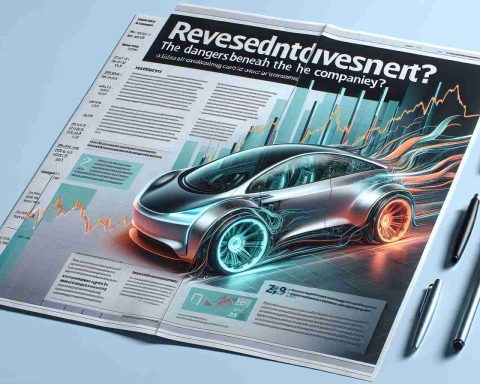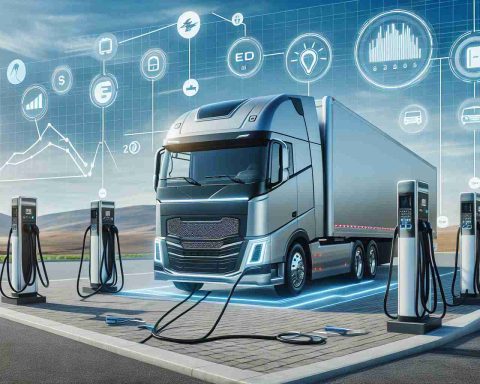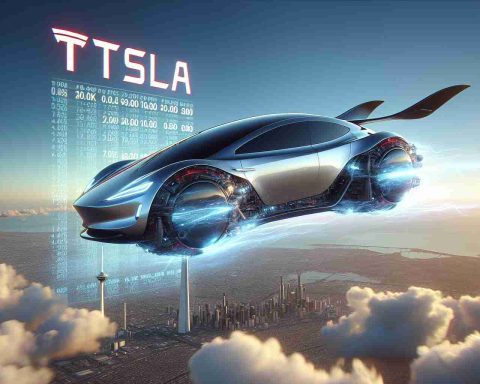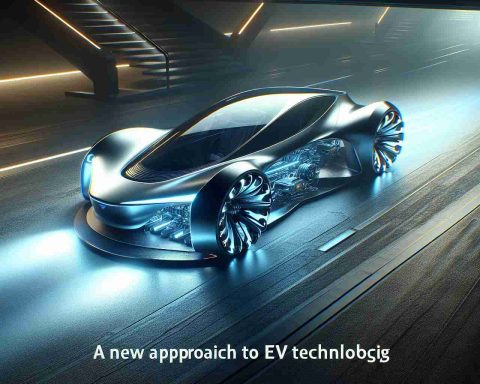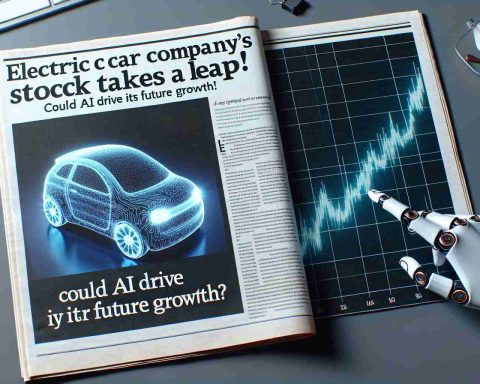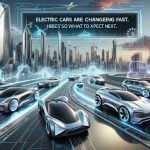The electric vehicle revolution is surging forward, and Rivian is at the forefront of the action. Volkswagen’s CEO has just opened doors to exciting developments.
Rivian and Volkswagen’s Growing Alliance
The automotive landscape is shifting dramatically as Rivian’s stock gains momentum following comments from Volkswagen’s CEO, Oliver Blume. He indicated the potential for expanding their recent collaboration, which began in November under the joint venture known as “Rivian and VW Group Technology, LLC.” Blume expressed optimism about the positive impact Volkswagen could offer, creating significant growth avenues for Rivian.
Volkswagen is set to invest a remarkable $5.8 billion into this partnership, which Rivian’s CEO, RJ Scaringe, has described as a substantial financial opportunity. Currently, their collaboration focuses primarily on integrating software capabilities into new electric vehicle platforms.
Strategic Innovations on the Horizon
As part of this partnership, Rivian is leveraging its software skills to boost EV architecture. This newly developed system includes a streamlined approach with seven control units, as compared to the typical 100 found in VW models. The future may also see joint purchasing initiatives and enhanced technological sharing between the two brands.
Moreover, Rivian has recently secured a significant loan from the U.S. Department of Energy, further solidifying its plans for a new plant in Georgia to support its upcoming R2 and R3 models. In light of these developments, Rivian’s stock experienced a notable rise, climbing over 5% on Friday, with overall growth of over 57% since their last earnings report.
The Broader Implications of Electric Vehicle Collaboration
The burgeoning partnership between Rivian and Volkswagen underscores a seismic shift in the automotive industry with profound implications for society and the global economy. As electric vehicle (EV) adoption accelerates, this collaboration exemplifies how established automotive giants can align with innovative startups to navigate the complex transition toward sustainable mobility.
Impact on Society and Culture
The collaboration significantly influences consumer perception, fostering greater acceptance of electric vehicles within mainstream culture. With Rivian poised to lead with cutting-edge technology, the alliance represents a compelling narrative of innovation and sustainability, prompting potential shifts in consumer behaviour towards greener choices.
Global Economic Ramifications
Volkswagen’s substantial investment highlights the competitive landscape among automakers as they pivot to electrification. This trend could reshape supply chains, catalysing growth in the EV ecosystem, which supports new jobs in manufacturing, technology, and sustainable energy sectors. Such economic dynamics are crucial as nations seek to fulfil climate goals, thus making investments in EV technology not just lucrative but necessary.
Future Trends and Environmental Significance
Looking ahead, the environmental implications are considerable. Enhanced EV platforms can lead to reduced emissions and lower reliance on fossil fuels, which are critical for combating climate change. As the partnership expands into joint innovations like battery technology advancements, the potential for significant environmental benefits becomes apparent, culminating in a greener future. The path paved by Rivian and Volkswagen may serve as a blueprint for further collaborations that prioritise sustainability while driving economic imperatives.
The Future of Electric Vehicles: Rivian and Volkswagen’s Game-Changing Partnership
The Electric Vehicle Landscape Transformed
The automotive industry is undergoing a transformative shift towards electric vehicles (EVs), characterised by the resurgence of companies like Rivian. Rivian’s burgeoning partnership with Volkswagen is setting the stage for innovations that may reshape the EV market. As part of their collaboration, Volkswagen has committed to investing a staggering $5.8 billion, signalling a strong belief in the potential of Rivian’s technology and services. The partnership, officially known as “Rivian and VW Group Technology, LLC,” is strategically aimed at enhancing software capabilities for new EV architectures.
Deepening Collaboration: What Lies Ahead
The alliance between Rivian and Volkswagen goes beyond financial investment. Volkswagen’s CEO, Oliver Blume, has voiced ambitions for a deeper integration of their technologies, which could lead to joint purchasing strategies and extensive technology sharing. This collaboration uniquely positions Rivian to focus on developing streamlined EV software that requires fewer control units—only seven in Rivian vehicles compared to the 100 typically utilised in VW models. This significant reduction in hardware complexity could lead to more efficient production and improved vehicle performance.
Moreover, Rivian has recently secured a notable loan from the U.S. Department of Energy. This funding is intended to advance the construction of a new manufacturing facility in Georgia, which will be pivotal for producing Rivian’s upcoming R2 and R3 models. The anticipation surrounding these models and the strategic steps taken by Rivian have resulted in a marked increase in its stock value, which has surged by over 57% since the last earnings report.
Engineered for Success: Features and Innovations of Rivian EVs
Rivian’s new models are expected to incorporate cutting-edge features that prioritise both performance and sustainability. These vehicles will likely offer:
– Advanced Driver Assistance Systems (ADAS): Enhancements in safety technology and autonomous driving capabilities.
– High-performance battery systems: Optimised for longer range and quicker charging times.
– Customisable Software Ecosystem: A versatile software platform that allows users to personalise their driving experience.
– Sustainable Manufacturing Practices: Emphasis on environmentally friendly production techniques, potentially setting new industry standards.
Market Trends and Insights
As demand for electric vehicles continues to grow, this partnership is reflective of a larger trend in the automotive industry that prioritises collaboration among manufacturers to harness shared technology strengths. Analysts predict that Rivian, with Volkswagen’s backing, could significantly disrupt established automakers by delivering innovative solutions and superior performance.
Challenges and Limitations
Despite the optimism, there are challenges ahead for Rivian and Volkswagen. The heavy investment by Volkswagen implies high expectations, which can create pressure for Rivian to deliver results promptly. Additionally, competition in the EV market remains fierce, with numerous automakers entering the fray. Rivian must navigate production scalability, supply chain constraints, and market entry of various competitors if it is to fulfil its ambitious vision.
Looking Forward: Predictions and Sustainability
In a landscape constantly evolving due to technological advancements and increasing environmental concerns, Rivian and Volkswagen’s alliance will be watched closely. Predictions suggest that, if successful, their partnership could lead to a new era of electric mobility that combines efficiency, sustainability, and cutting-edge innovation. As the EV market continues to expand, Rivian’s strategic positioning backed by Volkswagen’s resources may well define the future of electric vehicles.
For more information about the electric vehicle market and emerging trends, visit Edmunds.




